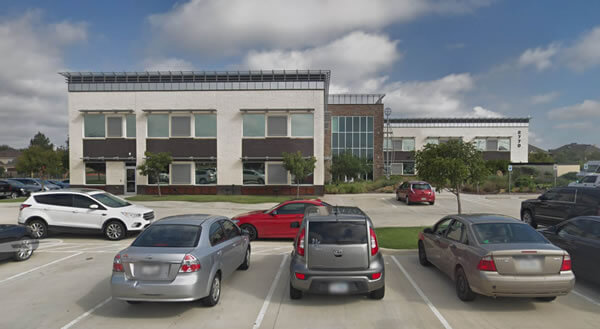About Wrongful Death Cases
What Is A Wrongful Death Claim?
When a family member passes away due to someone else’s negligence, recklessness, intentional actions, or misconduct, surviving family members have the right to pursue claims for various losses, including mental anguish, loss of financial support, loss of household services, loss of support, loss of advice, and loss of maintenance provided by the deceased before their untimely death.
Regardless of whether the deceased had a Will, an estate can be established. The legal damages of the deceased are pursued through a survival action case, distinct from the claims of the surviving family members.
How Long Do You Have To File A Wrongful Death Claim?
Time is of the essence. In Texas, there are two statutes of limitations:
- The period during which the deceased could have filed a claim – 2 years.
- The period during which you may claim on behalf of your loved one – 2 years.
- Failure to act within this timeframe may result in the prohibition of seeking financial compensation after 2 years and 1 day from the incident that led to the loss.
Decisions made promptly and strategic actions are crucial for the outcome of the case. Immediate gathering of evidence and possibly involving experts are necessary.
Distinguishing Wrongful Death From Survival Action
A Wrongful Death claim is initiated by certain family members who have suffered financial and/or emotional harm due to the unjust loss of a relative caused by someone else’s negligence.
A Survival Action is brought by the deceased’s estate, pursuing damages for harm suffered directly from someone else’s negligence that led to the demise.
The nature of the claim depends on the circumstances of the harm. Whether it is a sudden loss of a supporting father or a prolonged and painful death of a single individual, appropriate legal actions must be taken.
It is often advisable to file both types of claims to cover various damages. However, in situations where resources are limited and there are substantial medical bills, focusing on wrongful death claims may prevent certain lien holders from intervening and claiming a portion of the family’s compensation.
In summary, timely action, careful consideration of the circumstances, and strategic decision-making are pivotal in ensuring the best possible outcome for a wrongful death claim.
Who Can File A Wrongful Death Claim In Texas?
In the state of Texas, the eligibility to file a wrongful death claim is legally differentiated between those who can initiate the lawsuit and the beneficiaries entitled to compensation. Texas law specifies the individuals permitted to file a claim:
- Surviving spouse
- Child or multiple children (including adult children)
- Parent or legal guardian
Are Siblings Permitted To File A Wrongful Death Claim?
No, under Texas Law, siblings are not granted this right. However, funds recovered from a survivor action are directed to the estate. If the deceased had a will naming a sibling as a beneficiary, the sibling indirectly benefits financially from the lawsuit.
Can The Decedent’s Estate File A Wrongful Death Claim?
In Texas, the general rule is that the executor and/or administrator of the decedent’s estate may file a wrongful death claim if not initiated within ninety (90) days following the decedent’s demise by the surviving spouse, children, parent, and/or guardian. An exception arises if one of the referenced parties prohibits the estate from filing a lawsuit.
What Elements Must Be Established To File A Wrongful Death Claim?
To file a wrongful death claim in Texas, the decedent’s surviving spouse, parent, or child must initiate the suit. Additionally, it must be proven that a person or corporation committed a wrongful act causing injuries leading to the decedent’s death. The decedent would have been entitled to bring an action if alive, and the surviving spouse, parent, or child must have suffered actual damages.
What Damages Are Recoverable In Wrongful Death Claims Initiated By A Surviving Spouse, Parent, Or Child?
Recoverable damages include “actual damages.” A surviving spouse or surviving children may potentially recover punitive damages, although this doesn’t apply to parents of a child.
What “Actual Damages” Are Recoverable By Parents Of A Child In A Wrongful Death Claim?
Parents of a child victim in a wrongful death claim can recover damages such as monetary compensation for the child’s demise (before and after the age of 18), damages for the termination of the parent-child relationship (referred to as “companionship and society”), and mental anguish resulting from the child’s demise, expressed as emotional pain, torment, and suffering, often submitted as grief and bereavement.
What “Actual Damages” Can Parents Recover In The Case Of The Wrongful Death Of An Adult Child?
Parents can recover the same damages as if the child were a minor (refer to the above explanation).
What “Actual Damages” Can A Spouse Recover After The Wrongful Death Of Their Partner?
Recoverable damages include monetary losses resulting from the spouse’s demise, damages for the termination of the marital relationship (love, affection, comfort, and sexual relationship), mental anguish stemming from the demise, and the loss of inheritance (pertaining to the loss of future earning capacity or money that would have been added to the estate).
What “Actual Damages” Can A Surviving Child Recover If A Parent Is A Victim Of Wrongful Death?
Recoverable damages include future monetary loss resulting from the parent’s passing, damages for the cessation of the parent-child relationship (love, compassion, etc.), mental anguish, and potential loss of inheritance.
What Factors Will A Jury Consider In Determining Damages For Mental Anguish And Loss Of Companionship?
Jurors are typically instructed to consider the relationship between the deceased and the party filing the claim, living arrangements, periods of extended absence, family harmony, and shared interests or activities.
Is It Possible To Recover Punitive Damages If A Child, Spouse, Or Parent Dies?
Yes, punitive damages can be recovered if the loved one’s demise resulted from willful or grossly negligent conduct. However, the caps on punitive damages outlined in the Tort Reform Act of 1995 apply, and Texas law limits the recovery of punitive damages to the surviving spouse and children. Strangely, parents are not eligible to recover punitive damages for the loss of a child.
Can Damages Be Recovered For The Wrongful Death Of A Spouse If Separated At The Time?
Possibly. The eligibility for recovery in this scenario is case-specific and depends on the support, if any, received from the decedent during the separation period leading up to their demise.
If Pregnant, Can Damages Be Recovered For The Wrongful Death Of A Fetus?
Yes, but curiously, generally only if the fetus would have been capable of taking at least one breath if removed from the womb just before the tragic event or if the fetus is born alive and subsequently passes away.
What Is A “Survival Action”?
A survival action is initiated by or on behalf of an estate to seek compensation for damages suffered by the decedent who fell victim to wrongful death before their demise.
What Damages Are Recoverable In A “Survival Action”?
Recoverable damages in a survival action encompass the physical pain and mental anguish experienced by the victim before their death, medical expenses incurred leading up to the passing, funeral and burial expenses, property damages, and punitive damages.
Does The Type Of Claim Or Action Impact Hospital Liens?
Yes, amounts recovered in a survival action are subject to a hospital lien, whereas wrongful death damages typically are not.
In A Survival Action, Can The Estate Recover Damages For Physical Pain And Mental Anguish If The Victim Perished Quickly Or Lost Consciousness Rapidly?
It is unlikely. Recovery of such damages is generally confined to instances where conscious pain and suffering can be demonstrated, even if only for a brief period.
How To Prove A Wrongful Death Claim In Texas
Proving a wrongful death claim in Texas involves establishing four key elements:
- The defendant’s actions must have caused the loved one’s passing, either wholly or partially.
- The defendant must have acted with negligence or the specific intent to cause harm.
- The death must have affected the surviving family members who are legally entitled to bring a wrongful death action.
- Surviving family members must be present and experience financial and/or emotional suffering due to the wrongful death.
Was The Defendant Negligent?
The most challenging aspect of any wrongful death claim is proving negligence. While it might be straightforward in cases like drunk driving well over the legal limit, situations involving medical malpractice, for example, are often less clear and may require significant time and resources to determine. This aspect is sometimes referred to as a “breach of duty,” signifying the defendant’s responsibility for due care—a duty to keep the other person safe or refrain from actions that may cause harm.
Did The Defendant’s Actions Lead To Your Loved One’s Death?
Establishing causation can range from straightforward to exceptionally challenging. In cases like car accidents, it is relatively simple to determine if the defendant’s vehicle caused the incident.
However, in instances involving medical malpractice, proving negligence becomes intricate. For example, the connection between a negligent act or omission, such as prescribing the wrong medicine, and the subsequent death of a loved one may unfold over months or years.
Demonstrating Damages In Wrongful Death Cases
If you can establish intent or a breach of duty along with causation, damages are presumed due to the loss of the injured person. Yet, in cases where harm occurs without resulting in death, proving both elements may not suffice if the nature and extent of the harm (damages) are not demonstrated.
It is a harsh reality that others’ decisions can lead to the loss of a loved one. If you find yourself in this heartbreaking situation, reach out to our Frisco lawyers for a free consultation and advice.
Is Wrongful Death Considered “Murder” In Texas?
No, the two are distinct. “Murder” is a criminal charge, and only criminal courts can render convictions for it. In Texas, “Wrongful Death” is a civil action seeking financial damages, not imprisonment or execution. However, in cases involving murder, a wrongful death lawsuit against the perpetrator is possible. This was evident in O.J. Simpson’s case, where he was acquitted in the criminal trial but lost the wrongful death lawsuit filed by the surviving family members.
For example, if prosecutors opt not to pursue a drunk driver for manslaughter due to insufficient evidence, you can still file a “Wrongful Death” claim in Texas to potentially recover financial compensation.
Burden Of Proof In Criminal Vs. Civil Cases
In criminal cases, prosecutors must prove guilt “beyond a reasonable doubt,” whereas in civil wrongful death cases, the burden is to establish guilt by a “preponderance of the evidence” (more likely than not). This distinction explains how O.J. Simpson was acquitted in the criminal trial but lost the wrongful death claim, where the civil court jury found enough evidence to believe it was more likely than not that he caused his wife’s death.
Compensation Types In Texas Wrongful Death Claims
Several avenues exist for financial compensation in Texas. “Actual damages” types of compensation include:
- Financial losses, such as the lost earning capacity of your loved one,
- The value of care, maintenance, counsel, advice, and support they would have provided,
- Mental anguish, representing the emotional pain suffered,
- Loss of positive benefits like love and companionship from the deceased,
- Inheritance lost from what the loved one would have accumulated and left behind.
- Additionally, “exemplary” damages can be awarded in Texas, intended to penalize or punish the defendant for gross negligence, rather than compensating for actual losses.









 If your loved suffered a wrongful death due to the negligence or recklessness of another person or company, our skilled Frisco attorneys are ready to assist. Obviously, no amount of money can ever undo the ultimate injustice. Rest assured, however, that we will hold the wrongdoer accountable, get the answers you deserve, and seek the maximum financial compensation available.
If your loved suffered a wrongful death due to the negligence or recklessness of another person or company, our skilled Frisco attorneys are ready to assist. Obviously, no amount of money can ever undo the ultimate injustice. Rest assured, however, that we will hold the wrongdoer accountable, get the answers you deserve, and seek the maximum financial compensation available.







